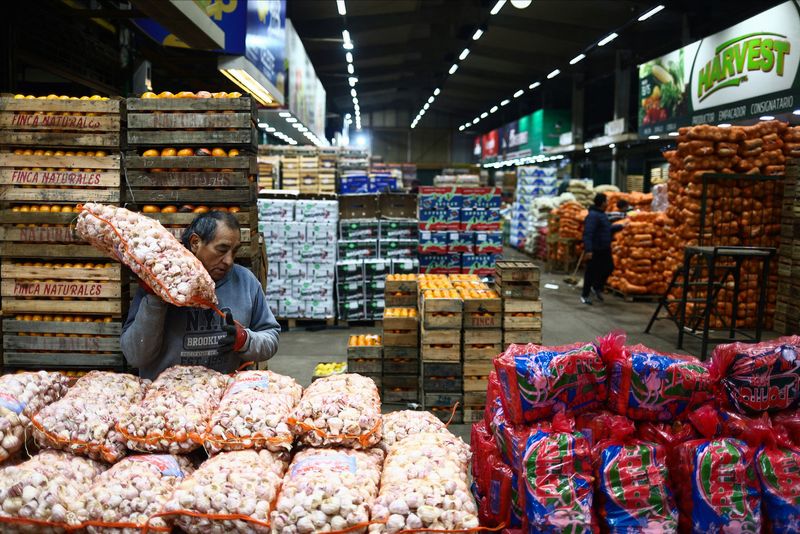By Libby George
LONDON (Reuters) - Domestic shocks in emerging economies in the G20 are increasingly impacting growth in the rich world, according to a report published on Tuesday by the International Monetary Fund.
Those countries -- ranging from China, the world's second-largest economy, to default-prone Argentina -- have become so embedded in the global economy, particularly via trade and commodity value chains, that they are "no longer simply on the receiving end of global shocks."
"Since 2000, spillovers from domestic shocks in G20 emerging markets — particularly China — have increased and are now comparable in size to those from shocks in advanced economies," the IMF wrote in a chapter of its World Economic Outlook report, released ahead of next week's IMF World Bank Group Spring Meetings in Washington, DC.
Domestic shocks in China can explain as much as 10% of output variation in other emerging markets after three years, and 5% in advanced economies, while shocks from other the G20 emerging markets account for as much as 4% of variation in other emerging and advanced economies, it said.
The intertwined nature of economies underscores the risks to the rich world of shocks in faraway nations but also the boost they could get if the economies strengthen again.
The ten emerging economies in the G20 - Argentina, Brazil, China, India, Indonesia, Mexico, Russia, Saudi Arabia, South Africa and Turkey - have more than doubled their combined share of global GDP since 2000.
Overall, spillovers have increased almost threefold since the early 2000s, led by China, while spillover risks from Brazil, India and Mexico have also grown moderately.
China is struggling to overcome prolonged economic headwinds, with high levels of local government debt limiting infrastructure investment and the property market entering its fourth year of free fall. Consumer and investor confidence are also under pressure.
The IMF said the Russian economy's pivot toward Asia will likely shift the direction of spillover effects.
Across the G20 emerging markets, the IMF warned that average growth of 6% per year over the past 20 years would slow and lowered the medium-term growth outlook to 3.7%.

It called on policymakers to maintain sufficient buffers and strengthen policy frameworks to manage potential shocks.
"The subdued outlook for G20 EMs risks spilling over and setting back growth and development across other emerging market and developing economies," it noted.